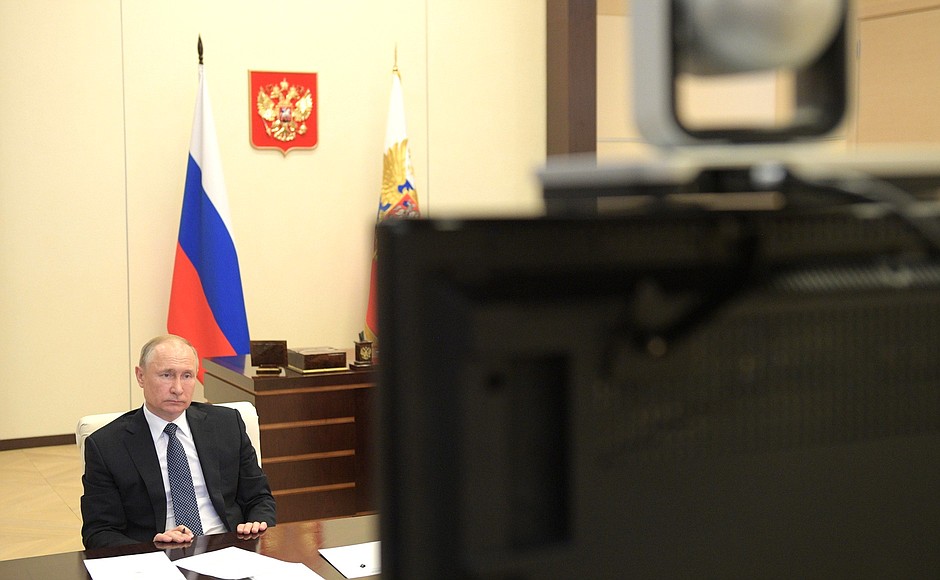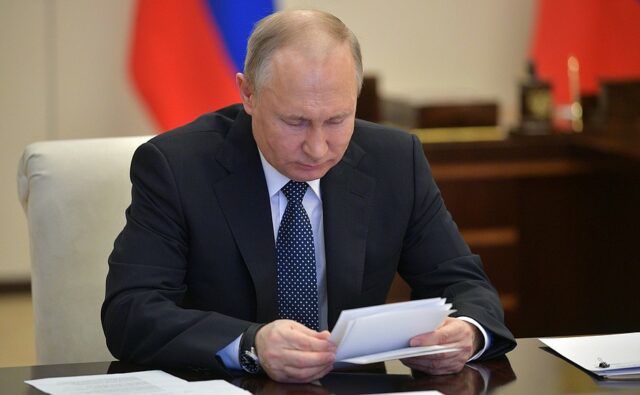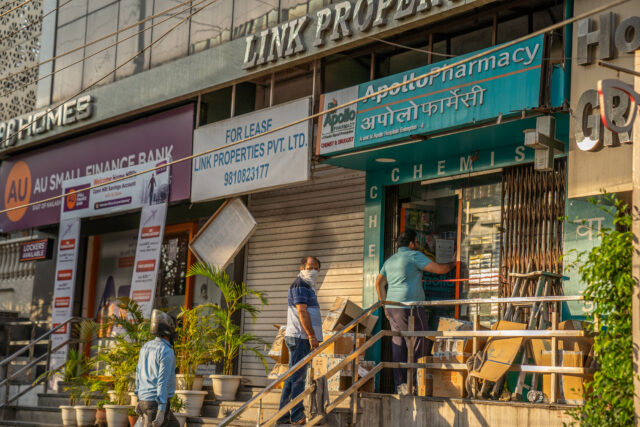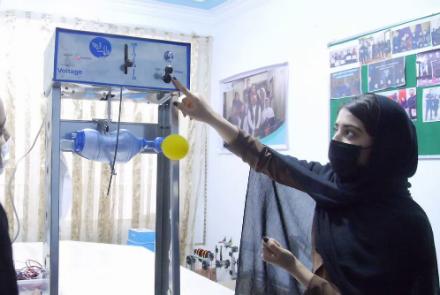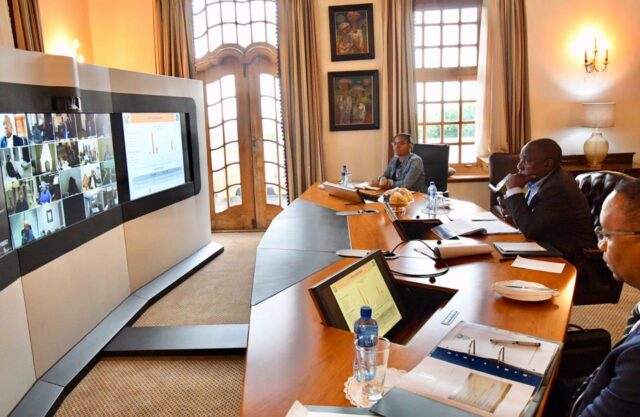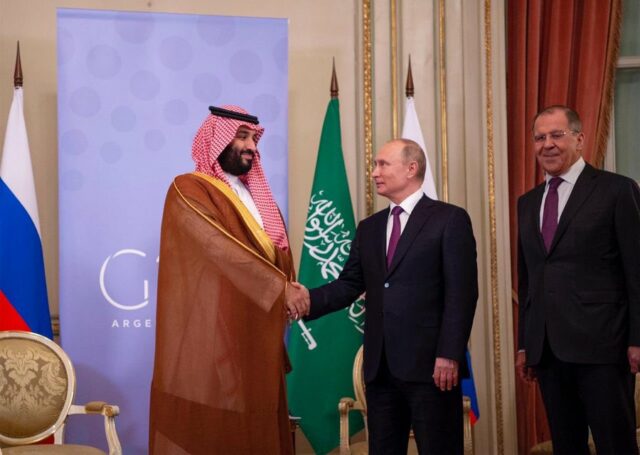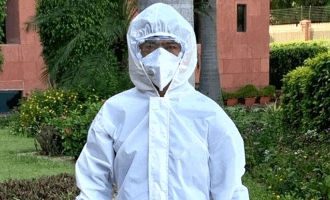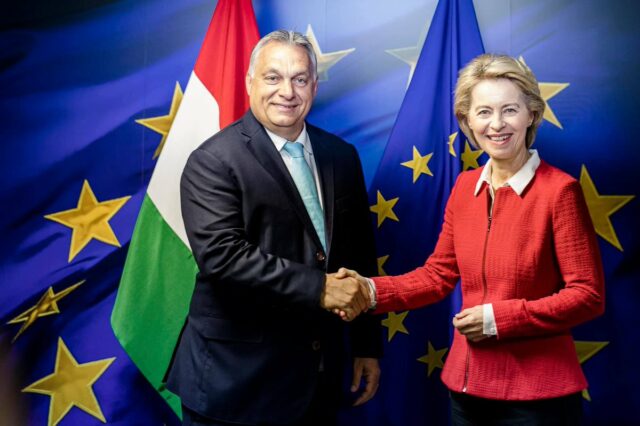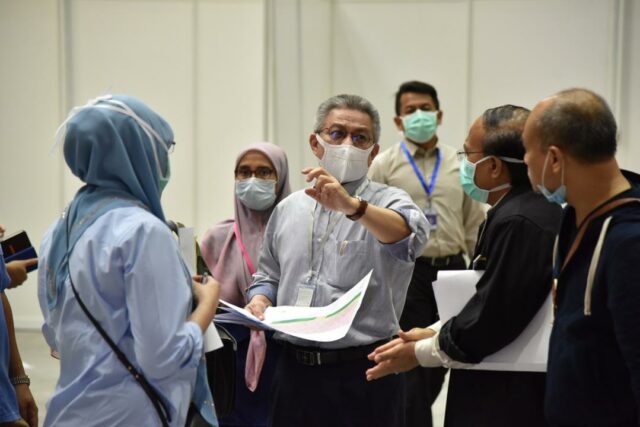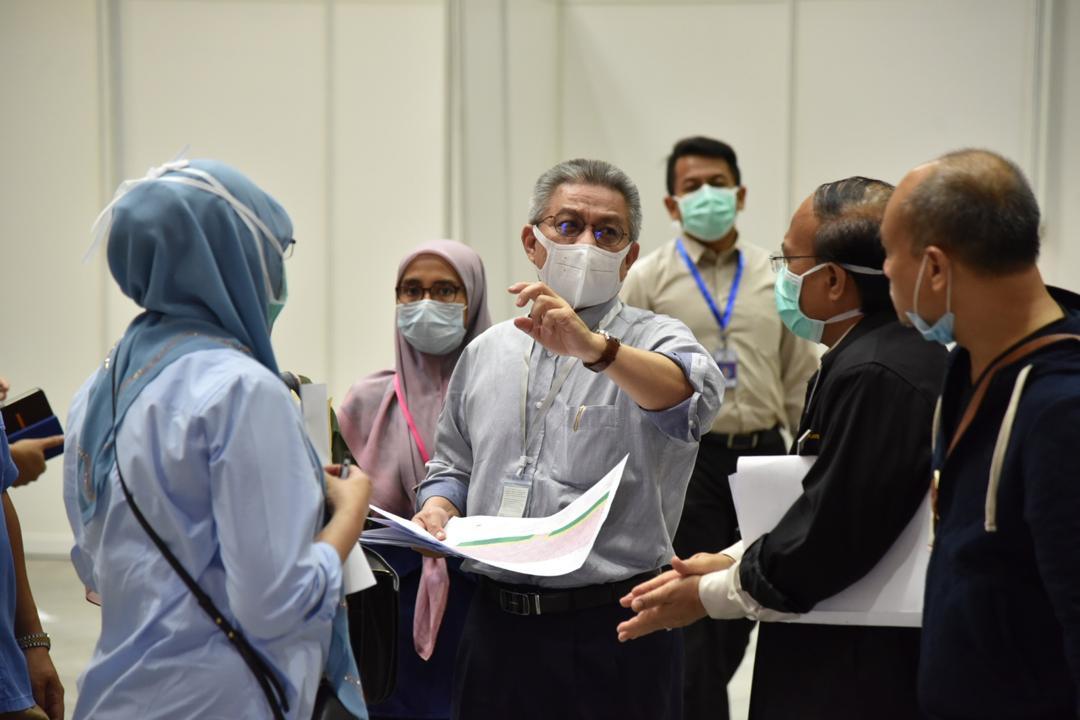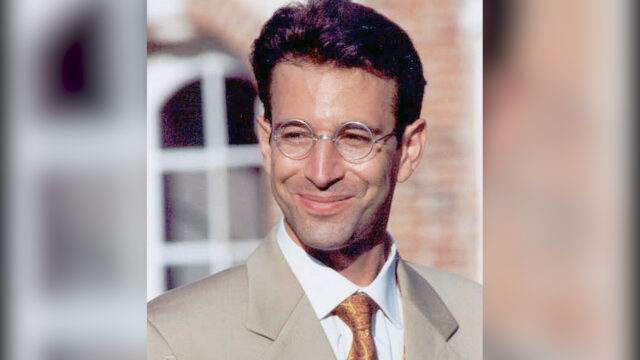NEW DELHI: Expressions of popular discontent in China have increased and are mounting pressure on Chinese President Xi Jinping and the Chinese Communist Party (CCP). The widespread anger among Chinese citizens over the lack of transparency and attempt to withhold information about outbreak of the Coronavirus epidemic was the spark that fanned the latent discontent which, provoked by the abolition of term limits on appointments to China’s apex posts of President, Vice President and cadres to the Politburo and its Standing Committee, has been simmering since the 19th Party Congress in October 2017. The death of Wuhan hospital doctor Li Wenliang further spiked discontent. A number of reputed Chinese citizens including many Party cadres, or at the least Party members, and at least one former member of the CCP’s 350-odd member powerful Central Committee (CC) and a Judge of China’s Supreme Court, have been blunt and direct in their criticism of Xi Jinping and his policies.
Criticism has been aimed at imposition of the progressively increasing security controls backed by expanding Party surveillance and centralisation of authority. Party presence and surveillance in college and school classrooms as well as campuses to monitor the lecturers and teachers has irked academia. There has been a steady hardening of China’s security establishment reflected in the annual enhancements of the national security budget from 2013, which coincided with Xi Jinping taking over as CCP CC General Secretary, Chairman of China’s Central Military Commission (CMC) and China’s President. This has been accompanied by a progressive tightening of surveillance over the population and introduction of security technologies like closed circuit cameras, facial recognition and AI. The till now unexplained absence of Chinese President Xi Jinping—whose activities otherwise feature daily on the front pages of Chinese newspapers and as the lead news item on state-owned TV—from January 29 till February 10 attracted adverse notice with a number of messages on Chinese social media criticising handling of the crisis by the Chinese central and provincial governments and many critical of Xi Jinping. At least two reputed academics clearly suggested in late January that the poor handling of the crisis will impact on Xi Jinping’s position!
On March 2 and February 23, 2020, Zhao Shilin, a retired Professor of China’s Minzu University, Deputy Director of the Culture and Arts Commission and former member of the CCP CC, posted two open letters to President Xi Jinping. They were scathing in their criticism. In his letter dated February 23, Zhao Shilin said China had “missed the golden window of time” around the time of the Chinese New Year resulting in the “epidemic spreading with great ferocity”. He described the costs of this mistake as “enormous” and “unspeakably painful”. Referring to Xi Jinping’s remark that the battle against the Coronavirus “is a grand test of the capacity of our nation’s system of governance”, Zhao Shilin bluntly declared: “Regrettably, I must say, you’re scoring zero so far!” He identified five factors as responsible with stringent security, ensuring the Party and Xi Jinping’s image and pre-eminence, and centralisation of authority, topping the list. The five factors are: (i) The Habitual Use of Extreme Social Stability Measures; (ii) The Institutional Practice of Only Reporting Good News, Not Reporting Bad; (iii) Rigid Institutional Supremacy; (iv) Loss of Functioning Civil Society; and (v) Lack of Information Transparency. Elaborating each of them, he said these inhibited cadres and officials from doing their job or taking any initiative. He stressed that “people from within and without the system are calling for systemic political reform” and that these must include implementing the “socialist core values of freedom, democracy, equality and rule of law” and guaranteeing the political rights of citizens, such as freedom of speech. In the letter of March 2, he reiterated “there should be more than one voice in a “healthy society” to demand free speech”.
Guo Yuhua, a prominent Professor in the Sociology Department of Beijing’s prestigious Tsinghua University, indirectly criticised Xi Jinping and the Chinese leadership in her interview with Radio Free Asia published on March 3, 2020. While addressing the Coronavirus epidemic and China’s systemic limitations, Guo Yuhua alleged that the CCP’s view of human worth remains narrowly utilitarian and inhumane and restricted particularly to its usefulness in achieving and maintaining political power. She was one of the first people to speak out in protest against the overt official persecution of her colleague Xu Zhangrun, a Professor of Law at Tsinghua.
He Weifang, Professor of Law at Peking University, shared a two-page handwritten article with friends on WeChat on February 17, 2020 calling for press freedoms. Though handwritten in an effort to bypass the censors, the posts were deleted about an hour after he forwarded the article to several chat groups. In his letter, He Weifang said: “I hope the heavy price [of the outbreak] will make Chinese authorities come to realise that without press freedom, people will live in distress and the government in mendacity.” He said the absence of press freedom limited the country’s ability to develop good governance.
A lengthy article criticising the shortcomings in governance, not allowing civil society to have a larger role, suppression of free speech, prediction of a far more serious fallout for the Chinese economy, and referring to Tsinghua University Professor Xu Zhangrun’s recent lengthy article, was posted on February 13 on the public social media account of Duan Zhanjiang, Judge of the Supreme People’s Procuratorate, China’s version of a Supreme Court. The post carried the curious disclaimer that these were not the personal views of the Judge.
Others also posted articles on their public social media accounts similarly risking almost certain punitive action. Reputed Tsinghua University Professor Xu Zhangrun authored a 6,246-word essay on February 5, captioned ‘Angry People No Longer Fear’, which went viral on China’s social media. It accused China’s leaders and specifically Xi Jinping of being out of touch with people’s needs and perpetuating an elite with so-called “Red Genes”. It accused Xi Jinping and a “small circle of leaders” of creating a “state within a state and engaging in big data terrorism”. He charged that “the political system has collapsed under the tyranny, and a governance system [made up] of bureaucrats, which has taken [the party] more than 30 years to build has floundered”. He accused the authorities of spending the “taxpayers’ hard-earned money for feeding the massive Internet police to monitor every word and deed of nationals”. Xu Zhangrun said they have not only “stifled public discussion of all ideas of life, but also stifled social communication and early warning mechanisms that existed originally” and blamed this for the failure of the authorities in Hubei to take precautions to control the epidemic. He called Xi Jinping a “political tyrant”, declared “the people no longer fear” and “the Sun will eventually come to this land of freedom!” Xu Zhangrun’s earlier article published on July 24, 2018 had ricocheted across China creating a stir among Chinese academics and students. He was then suspended from his post, banned from leaving China and not allowed to publish his writings freely in China. He has since been placed under house arrest, barred from social media and cut off from the internet.
46-year-old Xu Zhiyong, a former lecturer at the Beijing University of Post and Telecommunications, posted an article on February 3, urging Xi Jinping to step down for his “inability to handle major crises”. He called Xi Jinping’s political ideology “confusing”, his governance model “outdated” and said he had ruined China with “exhaustive social stability maintenance measures”. Xu Zhiyong said “Seven years ago, I appealed to you to lead China to become a nation that respects democracy and the constitution, but in return I was thrown in jail for four years. And now, your men are still looking for me trying to throw me back in jail again. I don’t think you are a villain, just someone who is not very smart. For the public’s sake, I’m asking you again: Step down, Mr Xi Jinping.”
Acts of apparent subtle protest by official and Party organisations have also been noticed. People Magazine, a publication under China’s People’s Publishing House, in its March 2020 edition published an article captioned “The Person Who Handed out Whistles” about Ai Fen, Director of the Intensive Care Unit (ICU) at Wuhan Central Hospital, which treated several Coronavirus patients in December, 2019 and who forwarded the SARS-Coronavirus Diagnostic Report to Dr Li Wenliang who then blew the whistle. The Hubei Province Communist Party authorities removed all posted versions of the article within three hours. Southern Weekly, a newspaper owned by the Guangdong Communist Party Committee and based in Guangzhou City, also published a detailed report on March 11 about Ai Fen and how the hospital authorities hid the information and forced medical staff not to talk about the outbreak.
Similarly, Wall Street Journal reported (March 19) that people were ‘outraged’ as Chinese propaganda authorities glorified a veteran Xinhua News Agency reporter Liao Jun at a news conference in March, for her “heroic” coverage of the Coronavirus epidemic in Hubei province. Gu Wanming, a retired Xinhua reporter, reacted with an essay widely circulated on a public social-media account stating: “If you have a little conscience, then you should refuse the accolade and decline to speak, otherwise people will say that you ‘trod on the blood of others to ascend the podium”. The essay was soon removed. Shao Yiming, a prominent virologist who is chief HIV/AIDS expert at the Chinese Center for Disease Control and Prevention (CDC) was reported by Caixin as saying (March 20) that Chinese health authorities initially failed to identify and control the threats posed by Covid-19 because of ‘faulty assumptions and weaknesses in a carefully constructed direct reporting system’.
Resentment was evident among the populace of Wuhan city, capital of Hubei province and epicentre of the Coronavirus outbreak. On February 14, they protested “the communist government’s suppression of freedom of speech and its hiding of information”. When Politburo member and Vice Premier Sun Chunlan inspected Wuhan on February 14, after the epidemic had been brought under control, the residents shouted from their apartments “Don’t believe them”, “they are telling lies”, “Cheers, Wuhan People!” “Wuhan People, Save Ourselves!” etc. That resentment persists was evident in the sharp and angry reaction when on March 6, Wuhan Party Secretary and close associate of Chinese President Xi Jinping, Wang Zhonglin called for carrying out “gratitude education among the citizens of the whole city, so that they thank the General Secretary [Xi Jinping], thank the Chinese Communist Party, heed the Party, walk with the Party, and create strong positive energy”. The story was reported in Changjiang Daily, official newspaper under Wuhan’s Party Committee, and shared widely across social media. In a WeChat post on March 7, captioned “Have a Bit of Conscience: It’s Not Time to Ask the People of Wuhan for their Thanks”, journalist Chu Zhaoxin described Wang Zhonglin’s timing as “insensitive”. Chu Zhaoxin said: “This is public opinion, this is reality. People who are not blind or deaf can see and hear, and those who are not blind can feel it. If this is Wang Zhonglin’s idea, I think he needs to educate himself. You are a public servant, and your job is to serve the people. Now the people you serve are broken, the dead are still cold, and the tears of the living have not yet dried. The sick have not yet recovered, and much of their dissatisfaction is completely reasonable. Rather than blaming the people in Wuhan you serve for not being grateful, you should reflect and be ashamed because you and your team are not working properly”. The post was removed by late night on March 7.
China’s leadership has taken note of this outburst of criticism. More than a month after the National Supervisory Commission (NSC) launched an investigation into the handling of the case of Dr Li Wenliang, a whistle-blower doctor in Wuhan who was punished by local authorities, it reported on March 19 that the local police and Wuhan Public Security Bureau had revoked the reprimand issued to him, apologised to Dr Li Wenliang’s family and disciplined two police officers who oversaw the case. The NSC also acknowledged the good that Li Wenliang had done which “helped to push for the strengthening of virus prevention and control”. In an attempt to deflect and blunt criticism of the regime, the NSC asserted that Li Wenliang was a Party member and not a so-called “opposition figure”.
Further indication of the extent of discontent surfaced last week with the report that children of high-level veteran Party cadres, also called ‘princelings’, posted on WeChat a call for an “Emergency Enlarged Meeting of the Chinese Communist Party’s (CCP’s) Politburo” to discuss Xi Jinping’s replacement. Radio France International (March 22) and Voice of America (March 23) also reported this. Chen Ping, son of a former high-ranking PLA scientist and himself a ‘princeling’ and owner of the Hongkong-headquartered Sun TV, said the meeting had a 13-point agenda and is to “discuss whether Xi Jinping is suitable to continue to be the President of the country, the CCP’s General Secretary, and Chairman of the Central Military Commission.” He said the ‘princelings’ had suggested constitution of a three-person group with Li Keqiang, Wang Yang, and Wang Qishan to organise the meeting. Stating that the post reflected many people’s thoughts, Chen Ping added “Now eventually it needs a (solution to fix the current policy) and it cannot always be this way. It is not good for China if the current policies continue.” Sun TV has offices in Shanghai and Beijing and focuses on China’s elite and the Chinese diaspora.
Opposition has been mobilised not only by mishandling of the outbreak of the Coronavirus epidemic. Pools of anger already existed: among the over 4500 officers of the People’s Liberation Army (PLA) dismissed on charges of corruption and their extended families; the almost one million Party members and cadres, including 175 at the level of Vice Minister expelled for corruption and violations of Party law; and academics and students stifled by the presence on college and school classrooms, campuses and libraries of Party cadres and ‘student spies’. These resentments coalesced with the anger of the millions of jobless and unemployed.
The appearance of the WeChat post by some ‘princelings’, further publicised out of Hongkong, hints at serious inner-Party conflict. While the CCP will emerge bruised, it will remain intact but Xi Jinping faces a potentially troubled period of uncertainty ahead.
(The author is former Additional Secretary, Cabinet Secretariat, Government of India and is presently President of the Centre for China Analysis and Strategy. Views expressed in this article are personal.)

